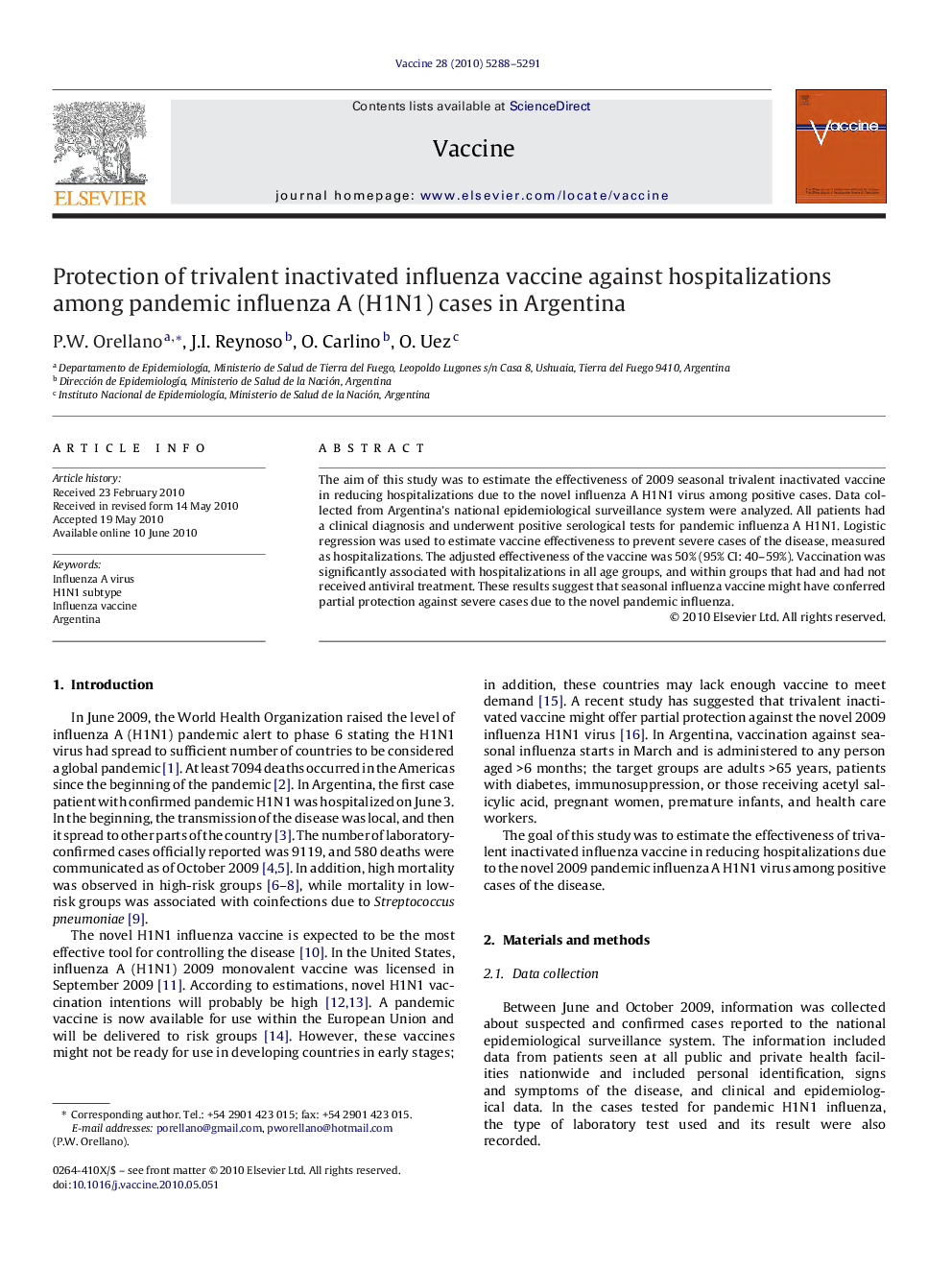| Article ID | Journal | Published Year | Pages | File Type |
|---|---|---|---|---|
| 10969984 | Vaccine | 2010 | 4 Pages |
Abstract
The aim of this study was to estimate the effectiveness of 2009 seasonal trivalent inactivated vaccine in reducing hospitalizations due to the novel influenza A H1N1 virus among positive cases. Data collected from Argentina's national epidemiological surveillance system were analyzed. All patients had a clinical diagnosis and underwent positive serological tests for pandemic influenza A H1N1. Logistic regression was used to estimate vaccine effectiveness to prevent severe cases of the disease, measured as hospitalizations. The adjusted effectiveness of the vaccine was 50% (95% CI: 40-59%). Vaccination was significantly associated with hospitalizations in all age groups, and within groups that had and had not received antiviral treatment. These results suggest that seasonal influenza vaccine might have conferred partial protection against severe cases due to the novel pandemic influenza.
Related Topics
Life Sciences
Immunology and Microbiology
Immunology
Authors
P.W. Orellano, J.I. Reynoso, O. Carlino, O. Uez,
